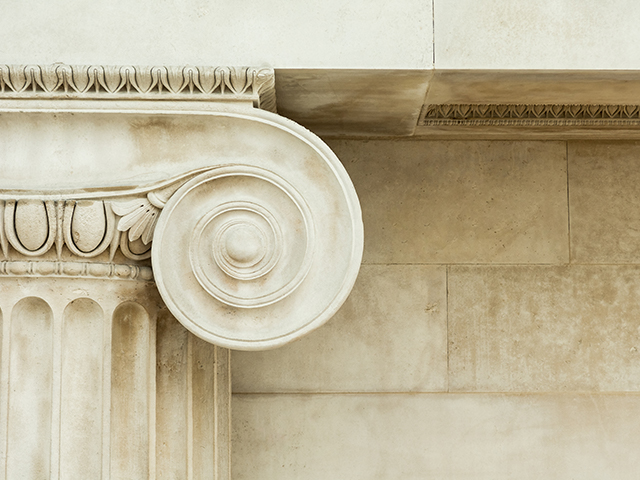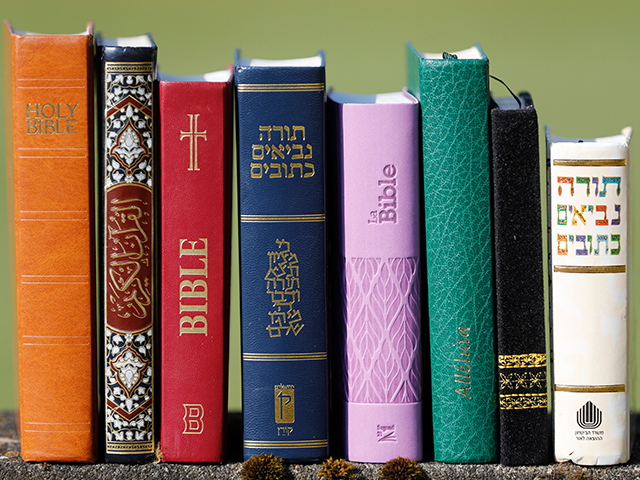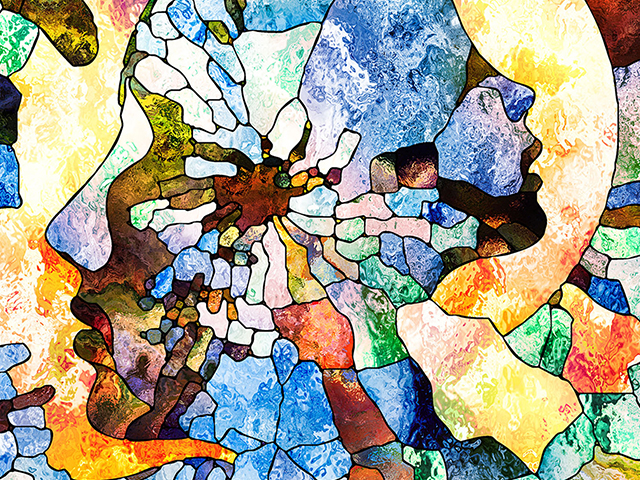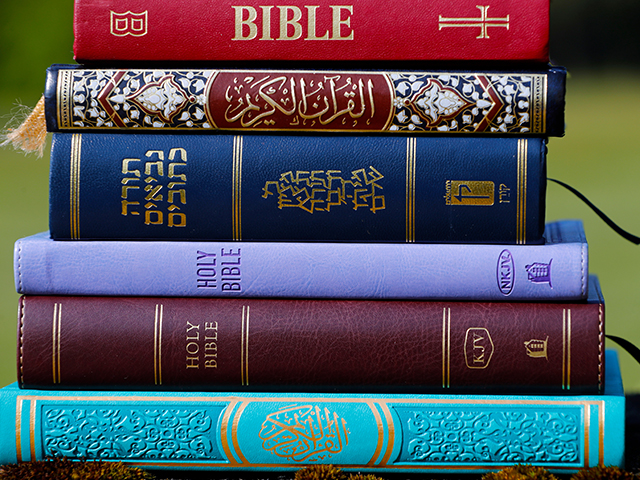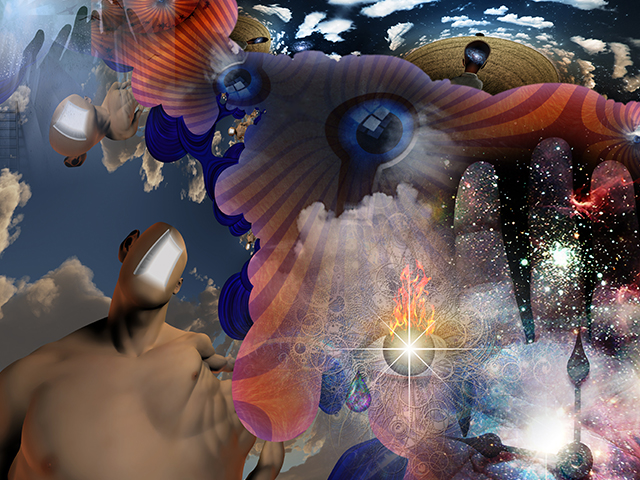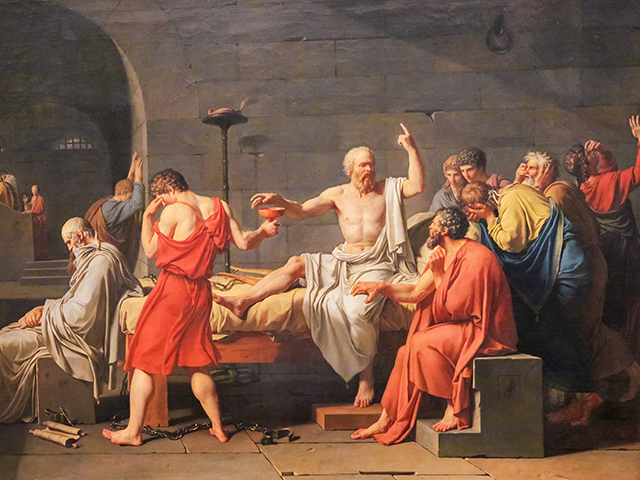Philosophy & Religion Program
The Philosophy & Religion unit has a demonstrated track record of equipping students with the academic skills necessary to thrive in competitive graduate programs as well as in the world outside of academics
Our Programs
For Students
The CSSAH Philosophy & Religion program provides a great deal of flexibility. As part of the major, students may choose any thirty (30) credit hours in philosophy or religion courses.
Naturally most students are concerned with a very practical question: “What can I do with a degree in philosophy or religion?” The answer is “Anything you want.”
-
Why Major?
• Flexibility in courses.
• Better performance on standardized tests.
• Excellent choice for pre-law students.
• Improved critical thinking skills.
• Excellent career opportunities.
• Improved understanding of important ideas, concepts and theories.
• Excellent, caring faculty. -
Majoring in Philosophy or Religion (or both) is an excellent choice.
Each semester, numerous classes are offered thus ensuring that students are able to smoothly progress to graduation. -
Many graduates of our program go on to graduate school and become professionals. For example, we count among our graduates Dr. Thomas Shelby, a professor in African-American Studies at Harvard University, and Dr. A. J. Richardson, a bishop with the African Methodist Episcopal Church.
- Students can also rest assured that they will be well prepared if they elect to go straight from the university into a career.
- The reasoning skills developed in the major enable our students to compete quite effectively.
Courses offered by the Philosophy & Religion Unit
We offer a wide variety of courses for Philosophy & Religion majors that will help them have a successful future.
- PHH 2102 Ancient and Medieval Philosophy (3) In this course, students will be introduced to the foundation of western philosophical thought beginning with the cannon works of classical Greek philosophy and progressing through the philosophy of the Middle Ages. Students will strengthen their intellectual skills, become more effective learners, and develop broad foundational knowledge of ancient and medieval philosophy.
- PHH 2101 Intro Ancient Greek Philosophy (3) Survey with emphasis on Plato and Aristotle. Topics include: the nature of reality, the nature and value of wisdom and virtue, and the good life and its attainment.
- PHH 3400 Modern Philosophy (3) In this course, students will be introduced to the major philosophers of the modern era. The course focuses on canon works of western philosophy by philosophers such as Hobbes, Descartes, Locke, Hume, Leibniz and Kant. Students will strengthen their intellectual skills, become more effective learners, and develop broad foundational knowledge of modern philosophers and their impact on western thought including the political philosophy of America’s founding fathers.
- PHI 1100 Critical Inquiry (3) Theory and techniques for creative and critical thinking, applying methods developed in science to decision making.
- PHI 2010 Introduction to Philosophy (3) In this course, students will be introduced to the nature of philosophy, philosophical thinking, major intellectual movements in the history of philosophy, including topics from the western philosophical tradition, and various problems in philosophy. Students will strengthen their intellectual skills, become more effective learners, and develop broad foundational knowledge.
- PHI 2101 Introduction to Logic (3) In this course, students will be introduced to the fundamentals of logic. The course focuses on developing the ability to think and communicate clearly and consistently while using the methods of formal and informal logic. Selections of works of logic from the western cannon, such as those of Aristotle, will be covered. Students will strengthen their intellectual skills, become more effective learners, and develop broad foundational knowledge of the nature and method of foundational logic.
- PHI 2800 Introduction to Aesthetics (3) In this course, students will be introduced to foundational philosophical views in the field of aesthetics. The course focuses on canon works of western philosophy on aesthetics, including those of Plato, Aristotle, and Kant. Students will strengthen their intellectual skills, become more effective learners, and develop broad foundational knowledge of aesthetics, especially in the context of western thought on art and beauty.
- PHI 3300 Intro to Epistemology (3) Examination of such topics as the difference between knowledge and belief, how knowledge is acquired, the bounds of human knowledge, and whether knowledge is possible.
- PHI 3500 Metaphysics (3) Examination of questions regarding: the nature of being, existence, and reality; identify and change; mind matter; free will and determinism; and nature of space and time.
- PHI 3601 Ethics (3) In this course, students will be introduced to foundational philosophical views in the field of aesthetics. The course focuses on canon works of western philosophy on aesthetics, including those of Plato, Aristotle, and Kant. Students will strengthen their intellectual skills, become more effective learners, and develop broad foundational knowledge of aesthetics, especially in the context of western thought on art and beauty.
- PHI 3700 Intro to Philosophy of Religion (3) Examination of such topics such as: the relation between reason and faith, arguments for and against the existence of god, the problem of evil, and the nature of sin.
- PHI 4300 Theory of Knowledge (3) Prereq: PHI 2101. Structure of knowledge including both classical positions and recent developments.
- PHI 4660 Ethical Theory (3) Prereq: 3 hrs. in philosophy or religion. Critical examination of classical system of ethical thought and consideration of recent ethical theory.
- PHI 4800 Aesthetics (3) Aesthetic experience and philosophy of art and criticism. Findings related to painting, music, drama and literature. For advanced students.
- PHI 4905 Selected Readings (3) Selected philosophers and philosophical movements. For advanced majors only.
- PHI 4906 Directed Individual Study (3) Prereq: Permission of department chair and a supervising professor.
- PHM 3120 Contemporary Black Social Philosophy (3) Critical analysis of roots and nature of black movements--specifically, Black Nationalism--as a world phenomenon, rather than as a movement limited to the United States.
- PHM 4100 Social Philosophy (3) Prereq: 3 hrs. in philosophy. Problems of social and political philosophy and examination of major theoretical models.
- REL 2000 Introduction to Religion (3) This course offers a broad introduction to the study of religion, exploring the fundamental concepts, beliefs, and practices of various religious traditions. Students will examine key religious themes, symbols, rituals, and texts, gaining insights into how these elements shape individual and collective identities. The course will also address how major religious traditions, particularly those central to Western intellectual and cultural heritage, have influenced and been influenced by one another. Through comparative analysis and critical discussions, students will develop a deeper understanding of the role of religion in human experience and its impact on global cultures.
- REL 2135 Black Religion in America (3) This course examines the development and impact of Black religious traditions in America, exploring how these traditions have shaped and been shaped by the broader socio-cultural and intellectual landscape. Students will study the historical evolution of Black religious practices, including Christianity, Islam, and other spiritual movements, within the context of their interactions with dominant Western religious and cultural norms. The course will also address the role of Black religion in social justice movements and its influence on American religious and cultural traditions.
- REL 2210 Introduction to the Old Testament (3)This course offers a comprehensive introduction to the Old Testament, examining its historical, literary, and theological dimensions. Students will explore the foundational texts of the Hebrew Bible, understanding their development and significance within the broader framework of Western intellectual and cultural traditions. The course covers key themes, historical contexts, and the impact of the Old Testament on Western religious thought and cultural practices. Through detailed analysis of the Pentateuch, Historical Books, Wisdom Literature, and Prophets, students will gain insights into the Old Testament's influence on Western religious and philosophical heritage.
- REL 2224 Interpreting Prophecy in the Hebrew Scriptures (3) Emphasis on biographical data, historical settings, and ethical/religious themes in the prophetic literature of the ancient Hebrews.
- REL 2240 Introduction to the New Testament (3) This course provides an introduction to the New Testament, exploring its historical, literary, and theological dimensions. Students will examine the texts that are central to Christianity, focusing on their origins, development, and influence within the broader scope of Western intellectual and cultural traditions. The course covers key themes, historical contexts, and the impact of the New Testament on subsequent religious and philosophical thought. Through critical analysis of the Gospels, Acts, Epistles, and Revelation, students will gain an understanding of the New Testament's role in shaping Western religious and cultural heritage.
- REL 2320 Western World Religions (3) This course offers an in-depth exploration of the major religious traditions of the Western world, focusing on Judaism, Christianity, and Islam. Students will study the foundational texts, doctrines, rituals, and historical developments of these religions, with attention to their influence on Western intellectual and cultural traditions. The course will also investigate the interactions and contributions of these religions to Western thought and society, highlighting their impact on Western philosophy, art, and cultural practices. Through this examination, students will gain an understanding of the significant role these religions have played in shaping Western civilization.
- REL 3130 Religion in American Culture (3) This course explores the intersection of religion and American culture, focusing on how religious beliefs and practices have shaped and been shaped by American society. Students will examine various religious traditions and their impact on American cultural and social developments, including those rooted in Western intellectual and philosophical traditions. The course will cover significant religious movements, influential figures, and key historical events that have contributed to the formation of the American religious landscape. Through this examination, students will gain an understanding of the complex role of religion in influencing American culture and its broader connections to Western thought.
- REL 3156 Religion, Personality and Race (3) Typological and structural relationships between religion, personality and race. An analysis of the personal religious lifestyles of prominent persons from different cultures.
- REL 3145 Women in Religion (3) In this course, students will be introduced to a history of the religious involvement of women in world religion over the past 2000 years. Students will analyze the work of social theorists explaining cross-cultural patterns and explore relevant topics, including those in the Western tradition. Students will strengthen their intellectual skills, become more effective learners, and develop their knowledge of this history.
- REL 3312 Eastern World Religions (3) This course explores the major religious traditions of the Eastern world, including Hinduism, Buddhism, Taoism, and Confucianism. Students will examine the foundational texts, practices, and philosophical concepts of these religions, understanding their development and influence within the broader context of global intellectual traditions. The course also highlights how these Eastern religions have interacted with and contrasted against the ideas that have shaped Western thought. Through detailed analysis and comparison, students will gain insights into the diverse spiritual and philosophical landscapes of Eastern traditions and their impact on global culture.
- REL 4440 Contemporary Religious Thought (3) Prereq: REL 2000, REL 2210 or REL 2240. Important theological movements and their leaders since 1950: Secular Theology, Theology of Hope, Black Theology, Vatican II and Liberation Theology.
- REL 4900 Selected Readings (3) Selected thinkers and problems in religion. For advanced religion majors.
- REL 4905 Directed Individual Study (1-3) For advanced religion majors.
Interested in Graduate School in Philosophy? Learn more about graduate school study.





